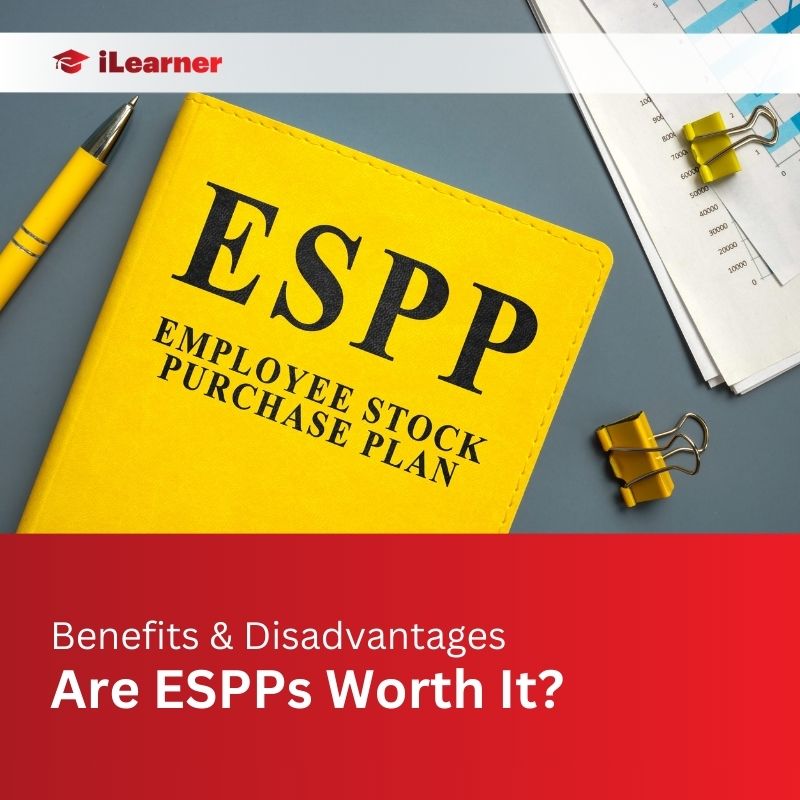Equity in private firms is akin to possessing a slice of the company, representing the extent to which various stakeholders, including founders, investors, and employees, own a share of the business.
This exploration delves into the diverse facets of private company equity, ranging from its varied forms to the tax implications and essential considerations for both individuals and corporations.
Forms of Equity in Private Firms
1. Interest in the Company (Ex-Profit Interest)
This form of equity is more than ownership—it grants individuals a tangible share in the company’s profits. Unlike mere ownership, it establishes a direct connection between an individual’s stake and the financial success of the business. This interconnection fosters a vested interest, aligning an individual’s fate closely with the company’s prosperity.
2. Restricted Stock Units (RSUs)
RSUs are a prevalent form of equity compensation, offering employees ownership rights that unfold after a specified vesting period. The vesting conditions add complexity, requiring employees to meet specific criteria before gaining complete ownership. This mechanism ensures commitment and links ownership to performance, creating a sense of responsibility among employees.
3. Stock Options
a. Incentive Stock Options (ISOs)
ISOs are a unique form of stock option designed to motivate and retain key employees. They provide employees with the opportunity to buy company shares at a predetermined price, coupled with a tax advantage. The distinctive feature of ISOs lies in their favorable tax treatment, allowing employees to pay less tax when selling the shares later.
- Tax Perks: ISOs offer tax advantages. The difference between the predetermined price and the fair market value is usually taxed as a capital gain, often at a more favorable rate than regular income tax.
- Hold and Gain: To enjoy the tax benefits, employees typically need to hold onto the shares acquired through ISOs for a specific period, usually one year from the date of exercise and two years from the grant date.
- Exclusive Offering: ISOs are not universally distributed; they are usually reserved for key employees, providing them with a sense of ownership and a stake in the company’s long-term success.
b. Non-Qualified Stock Options (NQSOs)
NQSOs, also known as non-statutory stock options, offer more flexibility for employers but lack the same tax advantages for employees.
- Tax Considerations: Unlike ISOs, the spread between the exercise price and the fair market value when exercising NQSOs is considered ordinary income, attracting regular income tax rates upon exercising these options.
- No Stringent Holding Period: NQSOs provide more flexibility regarding holding periods. Employees can choose to sell the shares immediately after exercising, giving them more control over their stock options.
- Wider Eligibility: Unlike ISOs, NQSOs can be offered to a broader range of employees, making them a versatile tool for companies looking to motivate and incentivize employees across different levels.
Private Vs Public Equity
The significant contrast between private and public equity lies in liquidity. Unlike public equity, which can be easily bought or sold on stock markets, private equity is not as readily convertible into cash. This is primarily due to private equity not being listed on public exchanges, making the process of turning ownership stakes into cash more intricate.
Considerations in Private Company Equity
1. Limited Liquidity
Private company shares lack the freedom of trading on stock exchanges, posing challenges for investors seeking swift conversion of their equity into cash. This limitation necessitates careful planning for financial flexibility and liquidity needs.
2. Vesting Conditions
Equity compensation often comes with vesting requirements, adding a temporal dimension to ownership. Employees may need to meet specific time-based or performance-related conditions before gaining complete ownership. This ensures that ownership aligns with contributions to the company’s growth and success.
3. Tax Liability
Exercising stock options in private firms triggers tax liabilities. Individuals need to be mindful of the cash required to cover these taxes when considering the exercise of their stock options. Understanding the timing and implications of these tax liabilities is crucial for individuals navigating the landscape of private company equity.
Potential Upsides of Equity in Private Company
1. Attracting and Retaining Talent
Equity compensation emerges as a powerful tool for private firms to attract and retain skilled employees. It goes beyond monetary incentives, fostering a sense of ownership and commitment among employees. This alignment of interests serves as a motivational force, linking individual success to the company’s prosperity.
2. Fostering Unity and Shared Goals
Equity in private companies transcends its financial implications—it serves as a potent instrument in creating a shared sense of purpose among employees. By granting ownership stakes, companies align the interests of their workforce with the overall goals, objectives, and success of the organization.
The sense of shared ownership goes beyond symbolism; it manifests as a driving force in organizational culture. Employees, seeing a direct correlation between their efforts and the company’s prosperity, forge a unique bond. This bond drives a collaborative spirit within the workplace, where everyone is not merely an employee but a valued participant in a shared vision.
Possible Downsides of Equity in Private Companies
1. Limited Liquidity
Investing in private company equity comes with the challenge of limited liquidity. Unlike publicly traded stocks, private company shares are not freely tradable on stock exchanges, potentially limiting financial flexibility.
2. Vesting Conditions and Double Vesting Conditions
Equity compensation often involves vesting conditions, and double vesting conditions add an additional layer of complexity. For example, RSUs may require employees to fulfill both time-based and performance-related requirements before complete ownership is transferred.
3. Restrictions on Selling
Private company stock ownership may come with restrictions on selling. Some companies may allow selling in a secondary market, while others impose limitations. Stringent conditions like the right of first refusal (ROFR) may further limit an employee’s ability to sell their stocks freely.
4. Impact of Going Public
While going public through an Initial Public Offering (IPO) can enhance the liquidity of private company shares, there are potential downsides. Selling shares immediately after an IPO may be restricted by the company. Lock-up periods, often lasting six months, and role-specific constraints may limit the immediate selling of shares.
5. Alternative Liquidity Events
Liquidity events in private companies extend beyond IPOs. Mergers, acquisitions, or takeovers can significantly impact stock compensation. In an acquisition, stock options might convert to those of the acquiring company, providing an opportunity to cash them out. However, the impact on equity compensation varies, and flexibility in managing equity may depend on negotiated agreements between the buyer and seller.
Exercising Stock Options and Liquidity Events
Exercising stock options, whether in a public or private company, triggers a taxable event. In some private companies, selling shares in a secondary market may be allowed, subject to company policies. However, if a company goes public or undergoes a merger, acquisition, or takeover, it could affect the liquidity of stock options, impacting stock compensation.
If a private company goes public, selling shares may be delayed due to roles or lock-up periods imposed by the company. Also, if a company undergoes a merger, acquisition, or takeover, it could affect the liquidity of stock options, requiring careful consideration of timing and regulations.
Conclusion
In essence, equity in private firms represents a nuanced form of ownership, intricately linking the financial fate of individuals with the prosperity of the business. While it offers unique advantages, it also presents distinctive challenges that necessitate careful consideration.
Private company equity serves as a vital instrument in aligning the interests of stakeholders, fostering commitment, and driving collective success. It is essential for both employees and companies to navigate the complexities with strategic foresight, recognizing the symbiotic relationship between individual ownership and corporate triumph.
Understanding the various forms of equity, tax implications, and potential downsides provides individuals and companies with the knowledge needed to make informed decisions in the dynamic landscape of private company equity. As the financial world evolves, so too must our understanding and approach to equity in private firms. The intricate dance between ownership, performance, and taxation requires ongoing vigilance, ensuring that equity remains a powerful force for both individual and corporate growth.
FAQs: Equity in Private Company
Q1: Can equity in a private company be transferred or sold like publicly traded stocks?
No, transferring or selling equity in a private company is more complex. Private company shares are not freely tradable on stock exchanges, limiting the ease of conversion into cash.
Q2: How do vesting conditions work in private company equity, and can they be customized?
Vesting conditions determine when employees gain full ownership of their equity. These conditions can be customized by companies, often involving specific time periods or performance targets.
Q3: Are there any tax advantages for employees with non-qualified stock options (NQSOs) in private firms?
Unlike incentive stock options (ISOs), NQSOs in private firms do not come with the same tax advantages. The spread between the exercise price and the fair market value is considered ordinary income, subject to regular income tax rates upon exercising.
Also Read:




